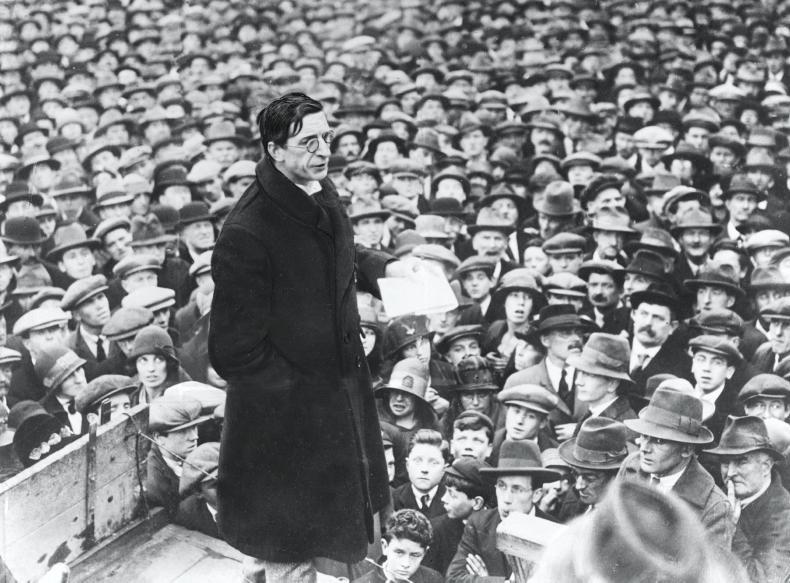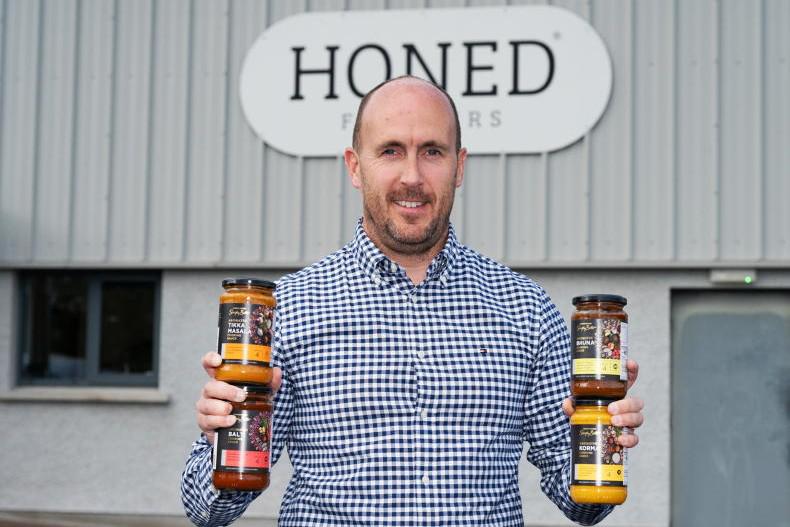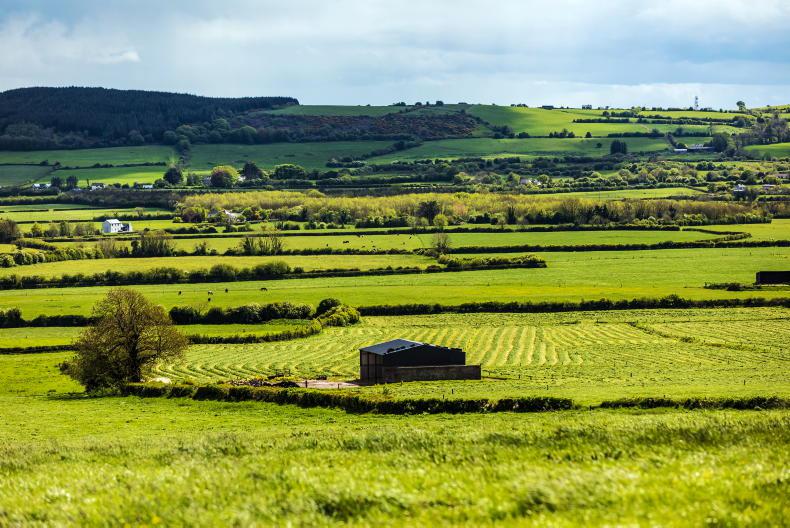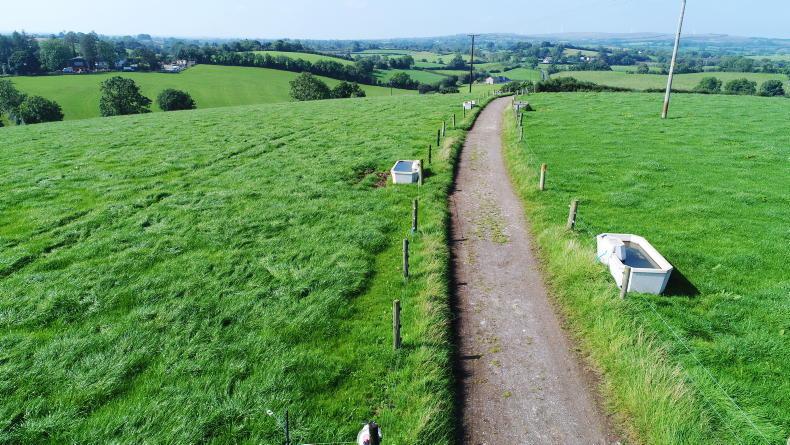The election of February 1932 was bitter and ugly, fought in the cold dark shadow of the civil war and the spectre of a global economic depression. Candidates exchanged insults - both political and personal- and claim and counterclaim, of coup d’état, IRA revolts, communist takeovers, and the unleashing of unfettered anarchy. The outcome- a first time “slightly constitutional” Fianna Fáil led government- changed Irish politics forever. Populism had entered the Irish political lexicon.
De Valera had fought the election on a platform of abolishing the oath of allegiance to the British crown, freeing the IRA prisoners and most significantly, withholding the land annuity payments. Land annuities were the bi-annual payments that over 500,000 former tenant farmers paid to the Land Commission for land they had purchased under the various land acts passed between 1881 and 1923. Apart from their economic significance (approximately £4 million per annum), they were a highly emotive topic in that they were ultimately paid to the British Treasury - a fact that stuck in the craw of many republicans. Originally a campaign initiated by the radical revolutionary republican Peader O’Donnell in 1926, it became an integral part of Fianna Fáil policy as its popular appeal increased.
Economic War
In June 1932, De Valera honoured his promise to the electorate, and withheld the payment of the land annuities to the British government, on the basis that “they had neither legal nor moral right to them”. Interestingly, while he withheld the annuities, this did not mean that borrowers did not have to pay them to the Land Commission, a fact omitted from Dev’s pre-election speeches. They were subsequently reduced to 50% of their former levels. In response, the British imposed tariffs of 20% and a series of quotas on a wide range of agricultural products from Ireland. This was met by a similar response from the Irish side on goods such as coal, cement, grain, and flour. The Economic War, which would endure for over six years, had begun.
The impact was immediate. In the absence of alternative markets, sales of agricultural goods, mainly cattle, collapsed with prices falling by almost 60%. Exports to Britain fell from £17.4m in the period of – December 1931 to £10.3m in the same period in 1932. Likewise, imports fell from £17.8m to £11.7m. The effect on farming, particularly the large grazier farmers, was immense. Not surprisingly, De Valera had little sympathy for this cohort, most of whom supported Cumann na nGaedheal. To maintain the support of the small farm base he introduced the Farmers Dole in late 1933.
Strategy of self-sufficiency
In many ways the conflict suited De Valera and Fianna Fáil. Since its foundation in 1926, its leadership, particularly De Valera and Lemass, had been advocating a strategy of economic self-sufficiency. Similarly, De Valera believed in moving agricultural production from cattle to tillage, seeing the growth in grazing since the famine, as part of a British conspiracy to depopulate the countryside. To give effect to this, a series of “protectionist measures” were introduced whereby a number of industries were given protection by limiting imports and granting subsidies to producers. An example of this was the establishment in 1933 of Cómhlucht Siúicre Éireann (The Irish Sugar Company) with plants in Carlow, Tuam and Thurles. The emphasis was on import substitution and the employment opportunities it created. In the same year the Industrial Credit Corporation (ICC) was established to provide financial support to fledgling Irish companies.
On the ground the Economic War was having its effect. The hard-hit large grazier farmers, under the banner of The National Farmers and Ratepayers League, organised a campaign whereby they withheld payment of the annuities payable to the Land Commission along with their property rates. This latter-day equivalent to the Plan of Campaign, aided by Eoin O’Duffy’s Blueshirt movement, met with stout opposition from De Valera’s government, but not before much localised violence and bloodshed. In one incident in Cork, farmer Michael Lynch was shot dead during a protest in August 1934 by the notorious Broy Harriers, a Garda “heavy gang” so called after Ned Broy, the then Garda Commissioner.
While a political triumph, the economic benefits accruing from the Economic War were more debateable.
The British Government under Neville Chamberlain found De Valera difficult to understand and deal with. In the early days they hoped that the economic hardships being suffered in Ireland would give rise to a return of a Cosgrave-led government or even be ousted in an IRA coup. When, however, Fianna Fáil won a snap election in January 1933, the fallacy of such assumptions became evident. As the Economic War dragged on, the British side became increasingly weary of the propaganda war being waged by De Valera in both Britain and the USA. Concerns of the possibility of a forthcoming war in Europe made them anxious about having a hostile neighbour on their western flank.
Anglo-Irish Trade Agreement
When a settlement finally came with the signing of the Anglo-Irish Trade Agreement in April 1938, it was hard to see it as anything but a major victory for De Valera and his government. Yes, the British made no concessions on partition, but in virtually every other respect, De Valera could be judged the victor. In return for an upfront payment of £10 million, land annuity loans of over £100 million were wiped out. And not alone were these cleared, but also a range of other debts relating to RIC pensions, damage compensation loans, and local authority loans were written off. A good deal even by current vulture fund standards!
In addition, the British agreed to return the three Treaty ports of Berehaven, Spike Island and Lough Swilly, which they occupied under the 1921 Treaty. In the June general election that followed, a grateful electorate gave Fianna Fáil its first ever overall majority and established the “Soldiers of Destiny” as the party of government for the next 50 years.
While a political triumph, the economic benefits accruing from the Economic War were more debateable. The years of protectionism and insularity resulting from the policy of self- sufficiency meant that many of our industries never fully modernised or became internationally competitive. Emigration- which had slowed down in the early 1930s due to the global depression- resumed and was a feature of Irish life well into the 1960s. While the planting of cereal crops - particularly subsidised wheat- did increase significantly, the main impact was in higher prices to the Irish consumer. Live cattle exports in 1938 continued to account for 50% of all exports compared to 52% in 1932 and Britain still accounted for 91% of all overseas trade. On the plus side, gross industrial output increased markedly from £55 million in 1931 to £90 million in 1938.
True economic growth, however, was still many years away and would require a new generation of political and economic leaders to deliver it.
Next week
The Irish Land Commission
About the author: Tony McCarthy received his PhD from Maynooth University in 2017. Since then he has published widely and his latest work is a collaboration with Prof. Terence Dooley of Maynooth and Prof Annie Tindley of Newcastle University on Irish Land Reform, which will be published later this year by McGill University Press.









SHARING OPTIONS